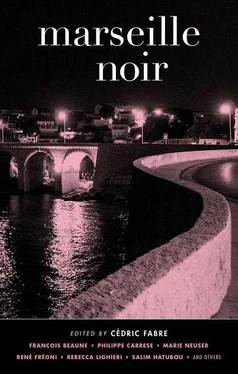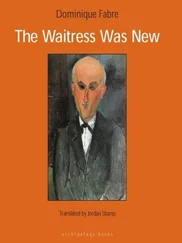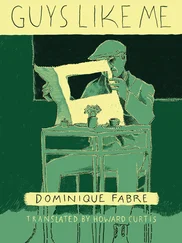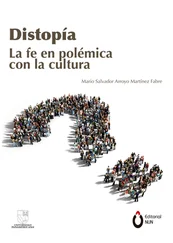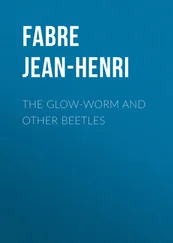Cédric Fabre - Marseille Noir
Здесь есть возможность читать онлайн «Cédric Fabre - Marseille Noir» весь текст электронной книги совершенно бесплатно (целиком полную версию без сокращений). В некоторых случаях можно слушать аудио, скачать через торрент в формате fb2 и присутствует краткое содержание. Год выпуска: 2015, Издательство: akashic books, Жанр: Крутой детектив, на английском языке. Описание произведения, (предисловие) а так же отзывы посетителей доступны на портале библиотеки ЛибКат.
- Название:Marseille Noir
- Автор:
- Издательство:akashic books
- Жанр:
- Год:2015
- ISBN:нет данных
- Рейтинг книги:5 / 5. Голосов: 1
-
Избранное:Добавить в избранное
- Отзывы:
-
Ваша оценка:
- 100
- 1
- 2
- 3
- 4
- 5
Marseille Noir: краткое содержание, описание и аннотация
Предлагаем к чтению аннотацию, описание, краткое содержание или предисловие (зависит от того, что написал сам автор книги «Marseille Noir»). Если вы не нашли необходимую информацию о книге — напишите в комментариях, мы постараемся отыскать её.
Marseille Noir — читать онлайн бесплатно полную книгу (весь текст) целиком
Ниже представлен текст книги, разбитый по страницам. Система сохранения места последней прочитанной страницы, позволяет с удобством читать онлайн бесплатно книгу «Marseille Noir», без необходимости каждый раз заново искать на чём Вы остановились. Поставьте закладку, и сможете в любой момент перейти на страницу, на которой закончили чтение.
Интервал:
Закладка:
That’s about all Maurice has done in the year he’s lived in la Plaine — drank and smoked weed. He easily found a little apartment to rent in an old building. Two dark rooms on the second floor where sunlight never enters because the street is too narrow. It’s not fancy, but for a coat of white paint slapped on quickly, the landlord gave him the first month free. The landlord is quite happy, because the portion of the rent covered by the government subsidy to low-income tenants goes directly to him. At least that part of the rent is guaranteed. You don’t want to be too picky, it’s hard to find a good tenant in Marseille, especially in this neighborhood that kind of scares people. The landlord would gladly sell the apartment — it’s an inheritance from his grandmother — but it’s not worth anything, or not much. Not even worth selling, really. That day will come — a promise from our elected officials. From one election to the next, there’s always something to hope for; meanwhile, there’s a high turnover of fairly unreliable tenants, evicted when necessary. Once spring has come, they pack up and go.
For the moment, all is well between Maurice and his landlord, a fifty-something who works “for the city.” He’s a road worker — that is, he pushes a broom over the streets while making his rounds to the cafés. Maurice has often seen him in his blue overalls sitting at a sidewalk café as soon as weather permits. From time to time, with his steel key, the municipal employee turns on the fire hydrants, releasing thousands of noisy liters through a plastic elbow in a powerful but almost useless spurt that flows into the gutter and turns into a measly stream slipping tortuously between the tires of the parked cars. When he decides it’s clean, he thanks the owner for his coffee, turns off the faucet, and resumes his walk, making a few scattered sweeps with a new birch broom just to be on the safe side, hastily dispersing the biggest waste blockages.
Between his moonlighting in the piano bars and the sticks of hash he sells in aluminum foil, Maurice gets along okay. The first week of every month, he goes to a shop that sells jewelry and ethnic clothing, on a street perpendicular to cours Julien, the other emblematic square of the plateau. The “plateau” no more exists in the official registries than does its subsection la Plaine, but it’s noteworthy: a mecca of Marseille life, la Plaine was in fact very officially baptized place Jean Jaurès long ago, after the socialist leader who was assassinated on the eve of the First World War, but the people of Marseille have always preferred to keep the traditional name of the huge agora, flouting the posthumous homage to the great man. Only the mailman and the locals know that it is really place Jean Jaurès. To someone looking for noise, black whores, or drugs, people will always suggest la Plaine; everybody knows how to get there even if the name can’t be found on maps of the city.
Every Saturday, there’s a young woman working in the jewelry store. She must be about the same age as Maurice. A superb redhead, natural or fake. Redheads are in fashion this year.
“Hi,” she says, greeting him with a pretty smile, “how are you?”
They’re formal, they address each other as vous to act like older people and keep their distance; mind you, she’s the landlady’s daughter and that deserves respect. She’s the one to whom he gives the envelope with the rent check. In exchange, he gets his receipt.
“I saw you’re a musician?” says the young saleslady. Finally, she’s getting interested in him! “I’m Sarah.”
“Matt. ”
“Your name’s not Maurice?”
How dumb can he get! She knows his first and last names as well as his address, of course. She laughs. He laughs.
“How do you know about my music?”
She shows him a photocopied poster pasted on the glass door. You can read it backward through the glass, Sex Toys in concert at K-Foutch, written with a felt-tip marker.
“Are you the guitarist?”
In the photo you can’t see any instruments, only four stupid faces; rather than standing there looking glum, they’d do better to get a haircut.
“I’m the guitarist. and the singer.” Maurice seems to take pride in it. “Matt’s my stage name, it’s. you have to in this job.”
If he had announced that it was a directive given to the secret service to protect its agents, he couldn’t have revealed it in a more modest tone.
“I’m okay with Matt.”
Matt had always feigned indifference, same with Sarah: that’s probably why they liked each other. Waiting with growing impatience every month for the moment they could see each other in the store. Maurice had seen her prancing around the street a few times, alone or with girlfriends, without even daring to approach her; ditto for Sarah. Time, fantasies, youth, and beauty did the rest: now they had a date! At Le Petit Nice, a respectable establishment run by a wise ex-boxer. You can read Libération there and you come across fewer cockroaches than in other cafés in the neighborhood.
Sarah trots in on red boots with open heels. Black miniskirt, tights — or stockings? — and matching diaphanous blouse, her bra brightly colored under the dark filmy fabric, and a purple-red leather jacket. As soon as he catches sight of her, Maurice mechanically folds up his newspaper. Seeing her dressed up like that, so desirable, he knows he has already won her over and she’s offering herself to him.
Each one pretends not to know what will follow. They seduce each other. Sarah has ordered a Get, which mints up her breath. Sometimes their mouths happen to draw close, conversation becomes more intimate, but they don’t kiss, not yet. Maurice is witty. Sarah cleverly lets him talk and laughs obligingly at his jokes; her smile is a weapon and she knows how to use it. Maurice puts his hand on the young woman’s hand, as if inadvertently; she doesn’t withdraw it.
“Wait for me,” he says, “I just need two minutes, got to make a phone call!”
He gets up and leaves her there, crossing between the cars to get to the square where kids are playing soccer on the asphalt. One of the phones is out of order, vandalized for a few coins; in the other glass cabin right next to it, the phone works: in a few coded sentences, Maurice makes an appointment with his dealer to buy half a pound of hash, enough to cover his own consumption with plenty left over to sell — earning him a decent week’s salary.
Back at the sidewalk café, he sits down and kisses Sarah directly on the mouth, by surprise. Their kiss lasts a few long seconds. A first kiss is important, you can’t fake it: if it works, it will work!
Time passes so pleasantly that the two lovers didn’t see night falling. Sarah remarks on this. Maurice asks her to dinner, to prolong the evening. Like a prince! His princess accepts without a fuss. The young man’s eyes seem to stare at the horizon.
“Wait for me,” he says again, “I just need two minutes.”
Again he gets up, to meet a big guy “of North African appearance” according to the police description, twice as swarthy because of the darkness. The guy, in a white sweat suit, is balancing his scooter between his thighs. Once the brisk transaction is completed, the dealer starts the engine and disappears immediately with his helmet under his arm, leaving Maurice lit up for a second by the headlight of the roaring machine.
Meanwhile, Sarah has gotten up; she puts her leather jacket back on and lights up a Marlboro.
“Let’s go!” Maurice says. “That was my dealer,” he can’t help boasting.
In Marseille, it is imperative to be a hood, even a little hood, it’s basic. You boast of being a hood and kissing gang bosses as often as possible. In this town of paupers, where businessmen are the aristocracy and politicians are corrupt to the core, the hoodocracy is a way to climb the social ladder. All these fine people conduct business together.
Читать дальшеИнтервал:
Закладка:
Похожие книги на «Marseille Noir»
Представляем Вашему вниманию похожие книги на «Marseille Noir» списком для выбора. Мы отобрали схожую по названию и смыслу литературу в надежде предоставить читателям больше вариантов отыскать новые, интересные, ещё непрочитанные произведения.
Обсуждение, отзывы о книге «Marseille Noir» и просто собственные мнения читателей. Оставьте ваши комментарии, напишите, что Вы думаете о произведении, его смысле или главных героях. Укажите что конкретно понравилось, а что нет, и почему Вы так считаете.
